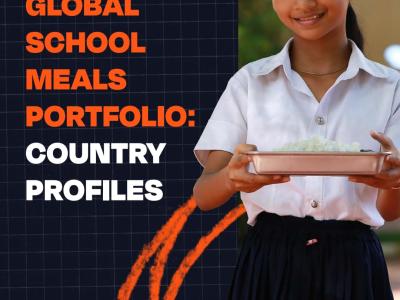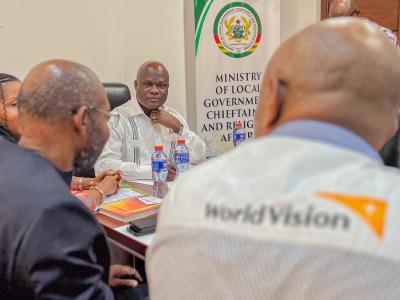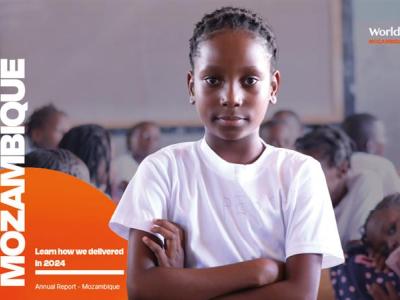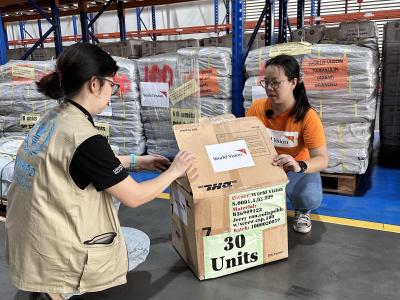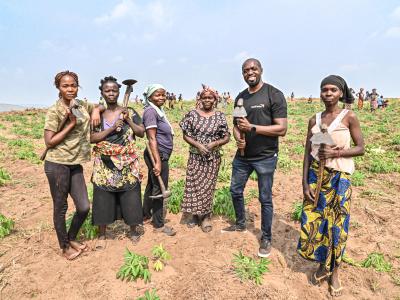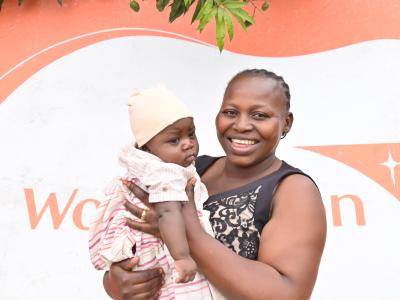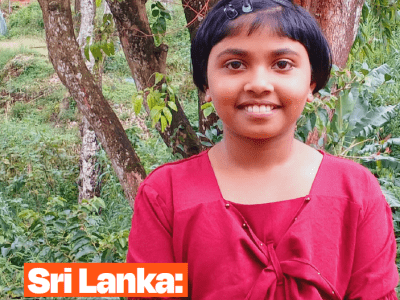publication / September 26, 2025
Global School Meals Portfolio: Country Profiles
World Vision’s school meals work across 19 countries
article / July 22, 2025
World Vision Ghana Shares WASH Business Plan with Key Stakeholders
World Vision Ghana presented its 2026–2030 WASH Business Plan to Minister for Local Government, Chieftaincy, and Religious Affairs, seeking collaboration to expand water and sanitation access. A proposed MoU will formalise joint efforts aligned with national goals.
publication / September 23, 2025
Our Promise to Mozambique
How World Vision Mozambique Delivered in 2024
article / July 8, 2025
Strategic partnerships are key to sustain effective humanitarian action in a Volatile, Uncertain, Complex, and Ambiguous (VUCA) environment
As World Vision we have recently paused to reflect on the meaning of the word “partnership”, starting from the word etymology - “sharing or partaking in anything”. Over the years, the organisation has indeed shared its pathway with strategic and operational stakeholders at local, regional and international levels. And yet, research conducted into the origins of WFP and WVI partnership has unveiled that there is nothing quite like the three-decades-long journey shared by the two organisations.
article / July 16, 2025
DR Congo: Meeting and Listening to Communities, Key Focus of the Programmes Director’s Visit to Kwango
This article recounts the field visit of Patrick Saah, Integrated Programme Director of World Vision DRC, to Kwango Province from 8 to 11 July 2025. It highlights key stages of the mission: engagement with local communities, monitoring of ongoing projects (health, education, agriculture, youth empowerment, and savings groups), partner discussions, and identification of operational challenges. Through powerful testimonies and quotes from the Director, the article underscores the impact of World Vision’s interventions on children and families, while emphasising the importance of community dialogue, transparency, and local ownership in building sustainable solutions.
article / September 25, 2025
DR Congo: Support During Pregnancy Saves Children’s Lives
Miryam, a mother of several children, benefited from World Vision’s targeted home visits during her latest pregnancy. Previously unaware of proper infant feeding practices, she learned the importance of exclusive breastfeeding through trained community volunteers. Applying this advice, she gave birth safely, and her baby, Ofranel, now three months old, is healthy and has never been sick. Miryam expresses her gratitude, saying the program helped her experience motherhood more confidently and safely.
publication / September 16, 2025
Theological Statement – Children Experience Love of God and Neighbours
A theological reflection on what it means for children to experience the love of God and their neighbors within humanitarian and development contexts, developed by a global team of scholars.
publication / September 15, 2025
Zambia: Our meals, our voice
In Zambia, children lead research to improve school meals through World Vision’s ENOUGH campaign, sharing challenges and hopes for nutritious school food.
publication / September 15, 2025
Sri Lanka: Our meals, our voice
In Sri Lanka, children lead research to improve school meals through World Vision’s ENOUGH campaign, sharing challenges and hopes for nutritious school food.
